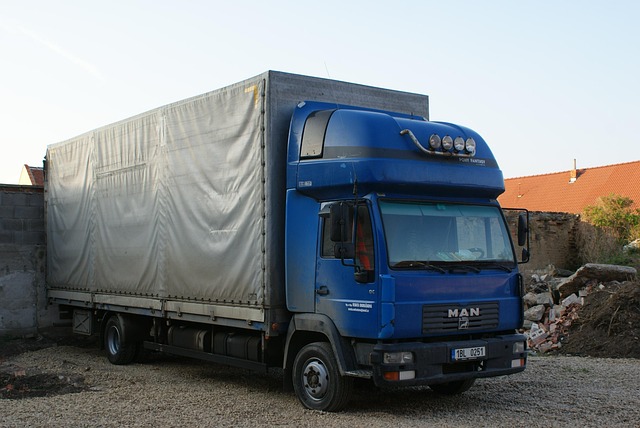For new trucking businesses, securing appropriate startup trucking SR22 policies is vital for both operational success and legal compliance. These policies, customized based on risk profiles that include experience levels, fleet sizes, safety records, and industry trends, safeguard the business and drivers against liabilities like property damage and personal injury. By collaborating with insurance providers, startups can manage costs while ensuring adequate protection, fostering sustainable growth and competitive pricing. Customization is key to addressing unique risks and requirements, enabling startups to comply with regulations, protect investments, and pave the way for long-term success in the trucking industry.
Navigating the world of insurance can be a complex task, especially for new businesses. For startup trucking operations, understanding and customizing SR22 policies is crucial. This comprehensive guide explores how to tailor these policies to meet individual and business needs. We delve into assessing risk profiles, optimizing coverage, and strategies to manage costs effectively, ensuring you have the right protection in place for your bustling trucking venture.
Understanding SR22 Policies for Startup Trucking Businesses

For new trucking businesses, understanding SR22 insurance policies is essential for smooth operation and compliance with legal requirements. These policies are designed to protect both the business and its drivers by ensuring they meet federal motor carrier safety standards. In the context of startup trucking, SR22 policies cover a range of risks, including liability for property damage or personal injury caused during transportation. They also include provisions for unemployment compensation, workers’ compensation, and various other risk management strategies tailored to the unique needs of trucking operations.
Startup businesses can customize their SR22 policies by working closely with insurance providers. This process involves assessing specific operational risks, such as vehicle types, driver experience levels, and daily driving hours. Based on this assessment, insurers can tailor coverage limits, deductibles, and endorsements to align with the business’s needs. Customization ensures that the startup trucking company is adequately protected while keeping costs in check, allowing for sustainable growth and competitive pricing.
Assessing Individual and Business Risk Profiles

When customizing SR22 policies for startups in the trucking industry, understanding individual and business risk profiles is paramount. For startups, this involves evaluating factors like experience level, fleet size, safety record, and the types of cargo carried. Each startup trucking operation has unique needs—some may require more liability coverage due to high-value shipments or potential third-party risks, while others might focus on comprehensive insurance to protect against mechanical failures or weather events impacting their operations.
Assessing risk profiles involves a detailed look at historical data, including accidents, claims, and regulatory compliance. For businesses, this also includes an analysis of the industry’s overall risk trends. By factoring in these elements, insurance providers can tailor SR22 policies to offer the right balance of protection, ensuring startups have the coverage they need to operate efficiently while managing potential risks effectively.
Tailoring Coverage to Meet Unique Needs

When it comes to SR22 policies for startup trucking businesses, customization is key. Each trucking operation has unique risks and requirements that off-the-shelf insurance plans may not adequately address. A qualified insurance broker can work with business owners to tailor coverage that fits their specific needs. For example, a young startup might require more comprehensive liability protection due to higher potential claims, while an established company with experienced drivers could focus on cost-effective coverage for asset protection.
By customizing SR22 policies, startups can ensure they have the right balance of financial security and operational efficiency. This tailored approach allows them to manage risks effectively, comply with regulatory requirements, and protect their investment in vehicles, equipment, and personnel. In the dynamic world of trucking, where regulations and operating conditions can change rapidly, customized insurance becomes an indispensable tool for long-term success.
Strategies for Optimizing SR22 Policy Costs

When it comes to customizing SR22 policies for startups in the trucking industry, cost optimization is a top priority. A key strategy involves evaluating and understanding the specific risks associated with your business operations. For startup trucking companies, this may include assessing factors such as driver experience, vehicle maintenance records, and the type of cargo transported. By identifying areas of lower risk, insurance providers can offer more competitive rates. For instance, implementing robust safety protocols, regular vehicle inspections, and well-vetted drivers can significantly reduce claims likelihood, making your SR22 policy a more affordable proposition.
Additionally, comparing quotes from multiple insurers is essential. The startup trucking SR22 policies market is competitive, allowing businesses to leverage this to their advantage. Don’t be afraid to shop around and discuss any concerns with potential providers. Remember, transparent communication about your business needs can lead to tailored coverage at a price that aligns with your budget, ensuring you get the best value for money.
Customizing SR22 policies is essential for both startups and established trucking businesses. By understanding their risk profiles, they can tailor coverage that meets their unique needs. This approach ensures adequate protection while optimizing costs. For startup trucking businesses, this means assessing initial investments, operational risks, and growth potential. Once tailored, these policies become a cornerstone of risk management, allowing operators to focus on what matters most: safe, efficient transportation.
